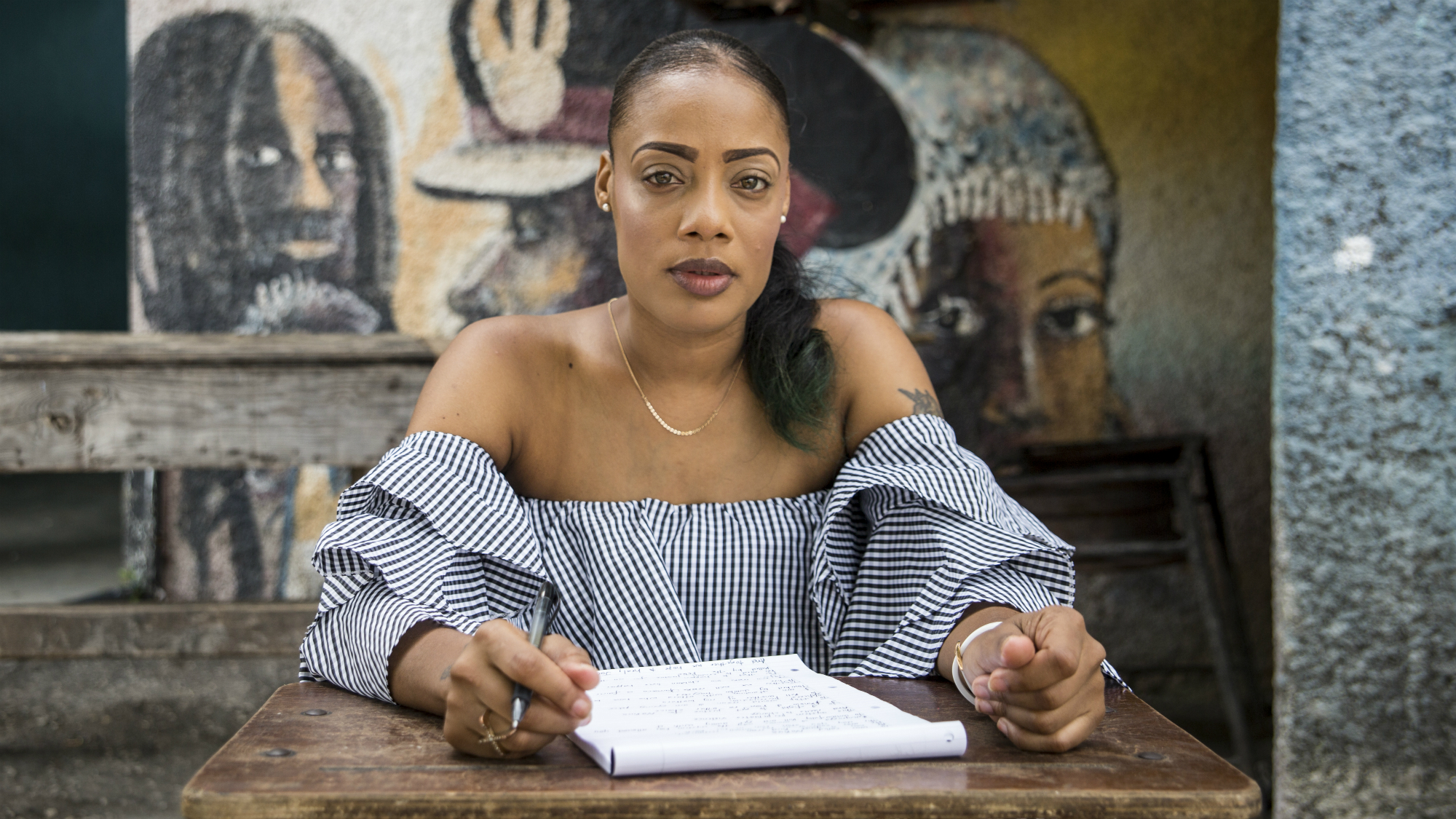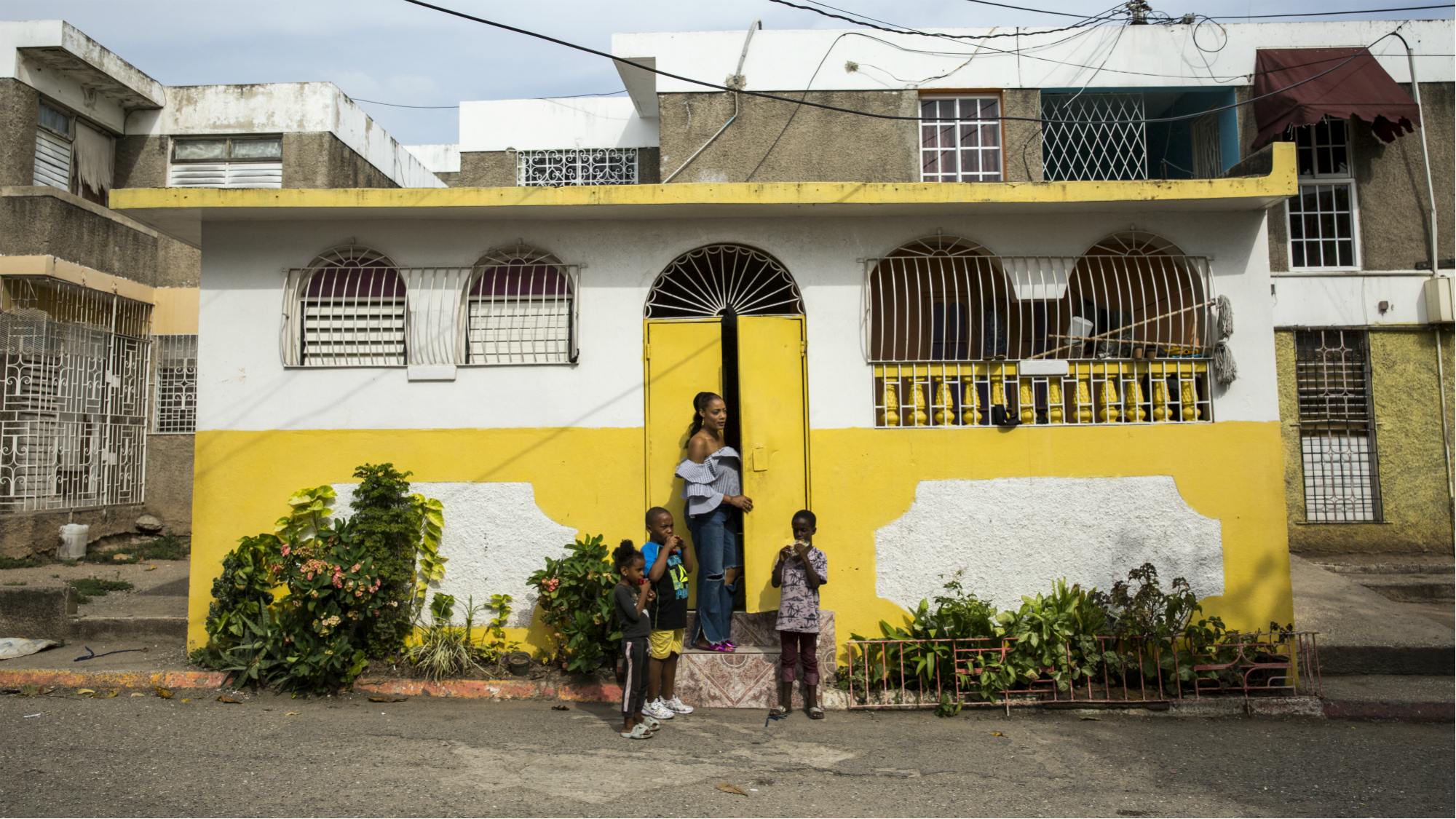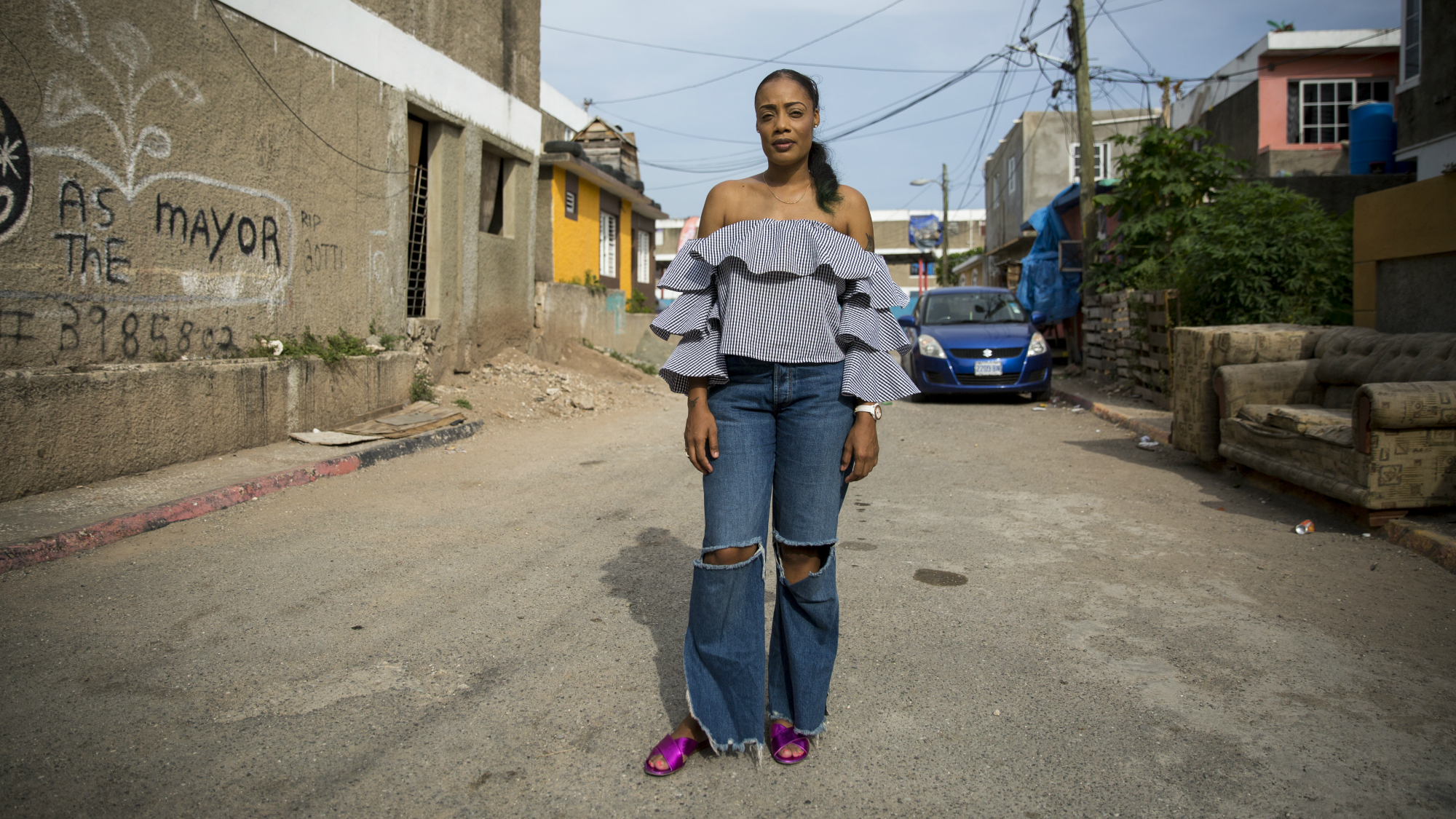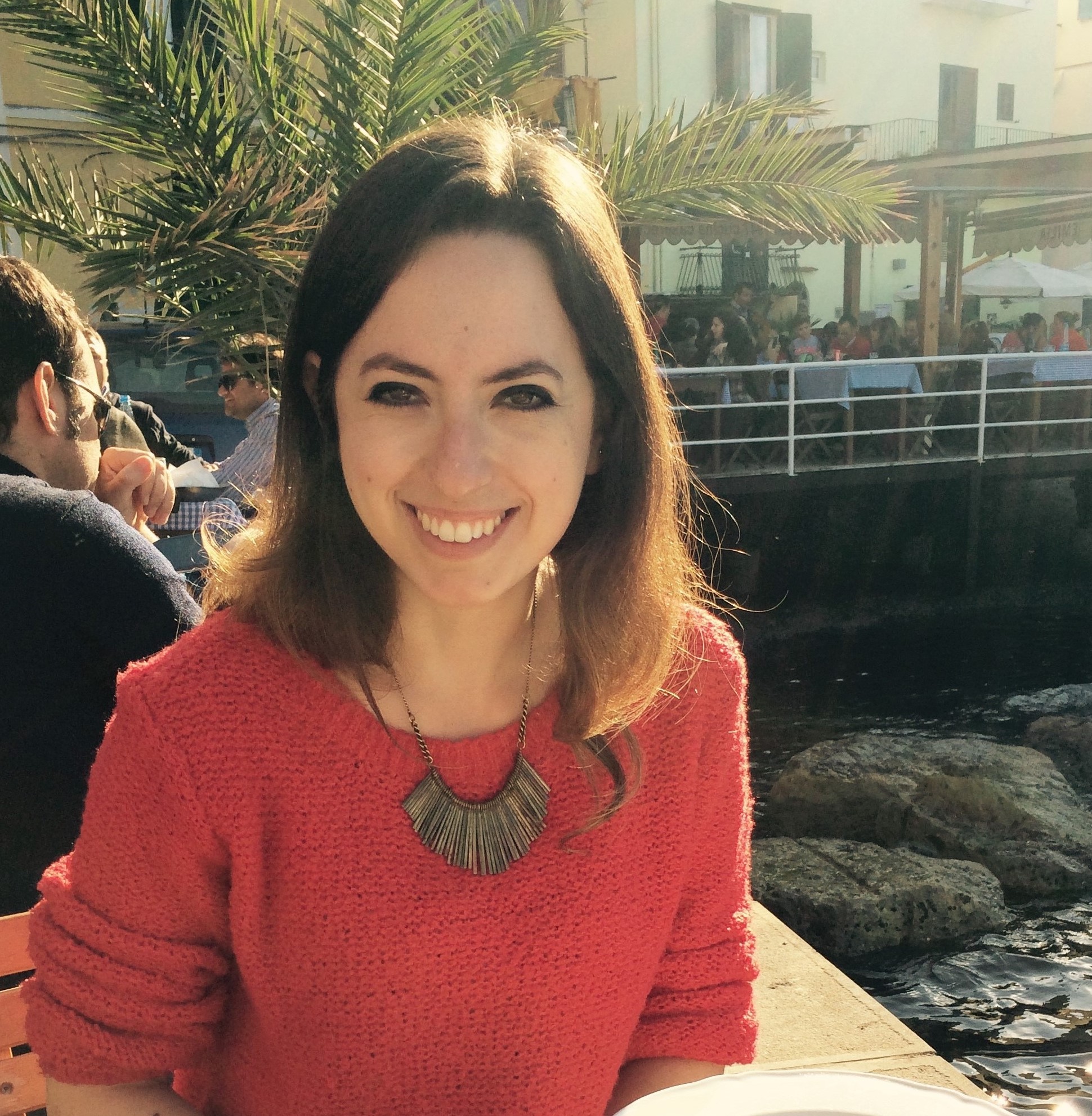Shackelia Jackson: ‘People thought I was obsessive, but that activism helped me to heal'
With one of the worlds highest rates of fatal police shootings, racially motivated police brutality continues to wreak havoc on Jamaican communities. We spoke to Shackelia Jackson, a human rights defender, about why she'll never stop fighting for judicial reform


With one of the worlds highest rates of fatal police shootings, racially motivated police brutality continues to wreak havoc on Jamaican communities. We spoke to Shackelia Jackson, a human rights defender, about why she'll never stop fighting for judicial reform
Additional reporting by Victoria Fell
Next in our #WomenWhoWin series is Shackelia Jackson, who refuses to give up in her quest for justice after the death of her brother, Nakiea, who was shot and killed by police in 2014. They had been searching for a ‘Rastafarian looking’ robbery suspect – Nakiea fit the description and so was shot dead in his small restaurant.
The case against the officer who shot Nakiea was dismissed in 2016, after one of the key witnesses did not attend court. According to Amnesty, he was too afraid of what might happen afterwards: in 2015, 8% of all murders committed across Jamaica were at the hands of law enforcement officials.
And in 2020, police brutality continues to wreak havoc amongst communities in Jamaica. Just two days after George Floyd's death, Susan Bogle, a disabled women, was shot dead by officers in her own home, after police and military forces burst into her home whilst reportedly chasing a criminal. In June, Black Lives Matter protestors gathered outside the US embassy in Kingston chanting Bogle's name and demanding reform.
'We are scared of the police, of their very presence,' explained Shackelia.
Not only has Shackelia had to deal with her grief, she has also faced intense intimidation from the police and an unresponsive legal system.
Celebrity news, beauty, fashion advice, and fascinating features, delivered straight to your inbox!
Still, she refuses to be silenced.
Our Women Who Win interview series celebrates strong and inspirational female trailblazers, shaping the future for us all, and Shackelia Jackson and her fight for justice is that in a nutshell.
Shackelia has been fighting not just on behalf of her family, but for others in the same situation. As she puts it, ‘I became a beacon of hope'.
We sat down with Shackelia to talk about the legislative change achieved by her tireless campaigning and her hopes for the future.
What was your upbringing like?
'I was raised in the inner-city in a large family, it was a really small community, very tight-knit. I didn’t even have a key for my house, that’s how much it was always open and accessible. It was a space of love and a space where our parents allowed us to dream: there wasn’t really any social limitations. We really represented what was right about Jamaica and could have been the model for what leaders talk about in terms of their vision for the inner city.'
How did that change after the death of your brother?
'It wasn’t as if there was a gradual progression. We went from being this happy, safe space, where there were no feelings of vulnerability, to a very paranoid space. The community felt like prisoners.'

What made you dedicate your life to the cause?
'I never said, “Okay, I’m going to do this” or realised anything; I was just on autopilot. I worked every single day until my phone crashed, I tried to engage with the authorities in terms of understanding the procedure, I took a year off from school. I became a genuine servant of the process: everything I did was peripheral to this. Maybe people thought I was obsessive, but that kind of activism was helping me to heal. I was learning to take care of myself.'
What keeps you motivated?
'I have three brothers to also live for and protect, and to ensure that if a police officer were to stop one, [they’ll] always remember that they have a Shackelia. So, unless [the police officer] is prepared to go through the process, he might not be as fortunate as the previous officer.
On a daily basis, I get phone calls and texts saying, “This is happening, I am fearful of this police officer, what can I do?” I have become a source of protection, and a source of information, who people feel will take them to a place of hope. This experience has allowed me to really own and come into my purpose. The worst really brought out the best in me.'

What has been your biggest achievement?
'I’ve become a better person. The need to be more socially aware and socially conscientious is often there, but we don’t do anything about it. I’ve invested in my education and I’m dreaming for a sound mind to be able to continue this process, to drive it towards the results where things are now documented and in policies, and we are holding people accountable.'
What active legislative change do you want to see?
'I would like to see change in terms of how a crime is processed and how police officers are treated after being charged with a crime: it’s almost as if they haven’t broken the law. I’m comfortable with policy changes, but we need legislative changes that are there, on the books, to ensure accountability and transparency. The police have the same training as they did in the 1960s and it needs to evolve to suit 21st century society.'
Have you seen the effects of your work reflected in the law?
'I’ve been told, “Your brother has saved many.” That was kind of a double-edged sword: I was happy that the writing is now on the wall but if we’re working according to policies and procedures, it should not have come to that point. It means that there are still systemic issues that need to change and promises that were not fulfilled, so we're continuing to work towards achieving these. But [people] know there is a Shackelia now.'
